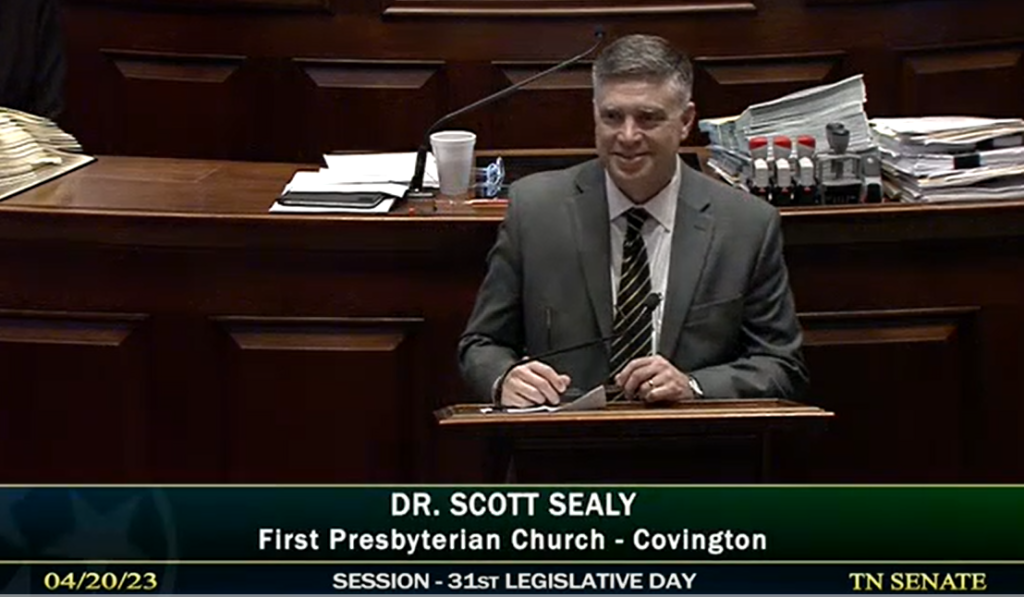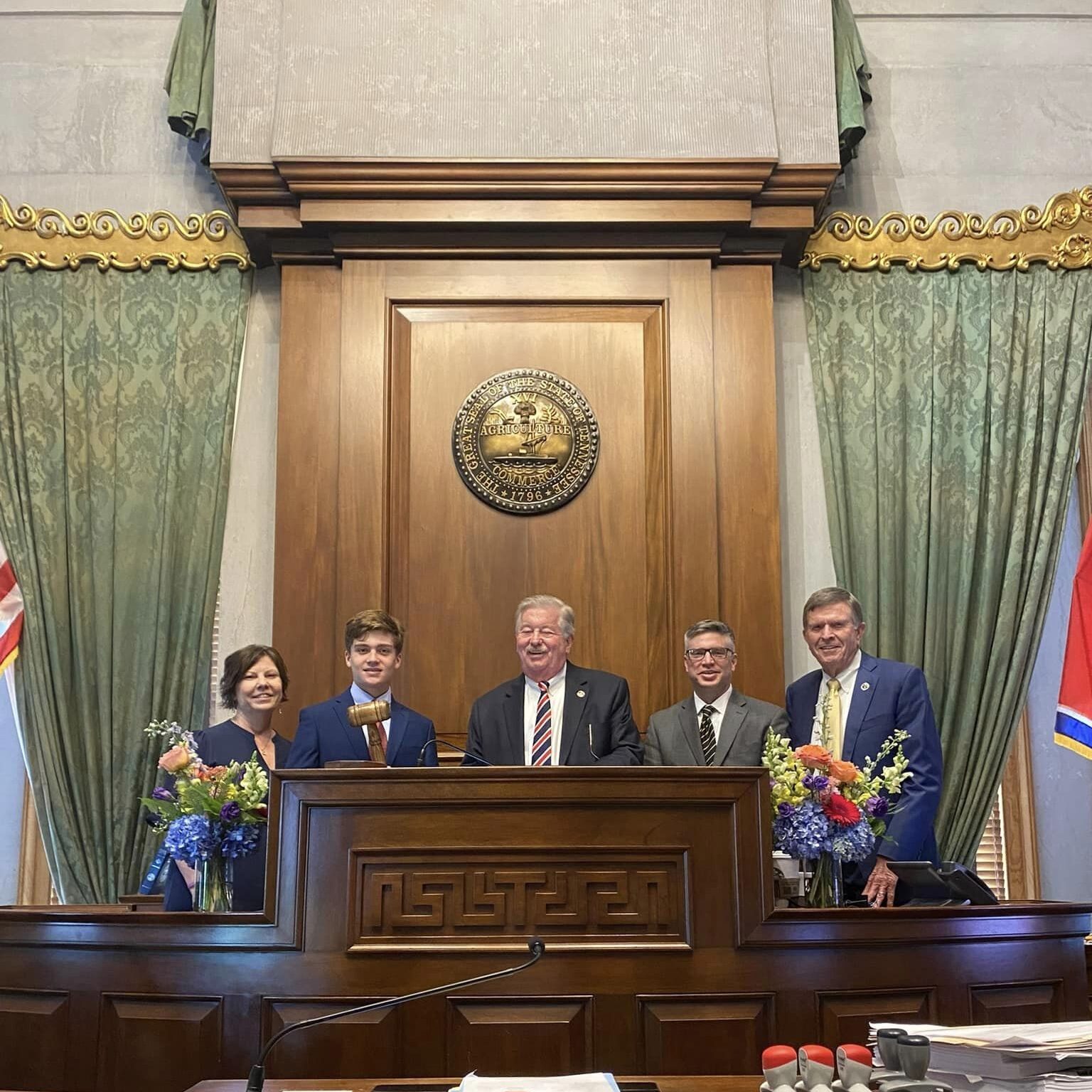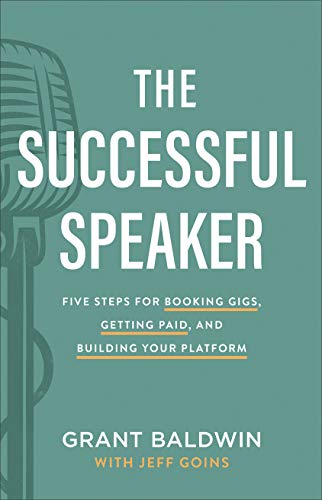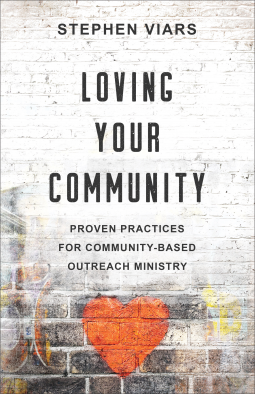I’m starting an email newsletter on substack. You can follow it and see old emails by signing up there: https://scottsealy.substack.com/
Category Archives: Uncategorized
Minister of the Day

We recently had the privilege of visiting the Tennessee State Senate. Our senator, Paul Rose, invited me to serve as Minister of the Day and I got to deliver the invocation. My son got to serve as an honorary page for the day. It was fun to watch be in the session to to spend time with Senator Rose.
Here is my prayer:
Our Sovereign God, who has established civil authorities for the restraint of evil and promotion of good, we give you thanks for these Senators whom you placed in service to our state. We are grateful for the gifts, talents, and experience you have provided to them, and we pray that you might continue to bless them with all that is needed to fulfill their honorable obligation. Guard and protect them, their families, and staff. Imbue their hearts with justice, compassion, and charity. And Grant them, O Lord, an understanding of the issues which they are addressing, wisdom in their deliberations and resolve in their actions, that they might enact laws that would be pleasing in your sight and for the well-being of all people. Amen.

Thoughts on So-Called “Virtual Communion”
The 41st General Assembly of the Evangelical Presbyterian Church referred to the permanent Theology Committee for study and exploration “the matter of virtual communion in the EPC with regard to our constitution and practice and to report to the 42nd General Assembly with any possible recommendations.” After some reflection and study on the issue I sent the committee the following thoughts.
What is “virtual communion”?
Before addressing some Biblical, theological and constitutional points I think it would be helpful to consider what specifically is happening in what is called virtual communion. The technological advances that allow churches to broadcast services or to communicate with others whom we can see and hear through computers have been a helpful substitute for meeting together in person. But as we adopt these technologies for communication, we should be cautious in our understanding of what is happening and of our adopting and applying technological words uncritically. To use the term “virtual communion” is taking a technological term as an adjective – which itself means something simulated, not real. So, can we have a simulated sacrament? We should remember that in reality, what is happening when we are live-streaming or playing back a pre-recorded service, is that a camera and microphone is sending images and audio signals to computer screens. We are mediating images and sounds through digital means.
In thinking through whether a sacrament can legitimately be celebrated through a simulation, it might be helpful to consider applying the same rational to other media. Does video display or recording provide a unique means that validates the practice of someone physically separated taking elements? If so, is there a particular resolution or display type that is the turning point? We can see an image of the minister celebrating the sacrament on a computer screen – would photographs sent by text every few seconds work? Would black and white photographs sent via fax? Although they don’t have the same experience for a viewer – the real difference is the resolution and speed of the images. The faxed picture is ontologically closer to a video live-stream than to being in the room in person.
The question of virtual communion is a question of whether an individual or household can take elements away from the gathered congregation if images and audio of the sacrament’s celebration are projected to them.
Scripture Assumes Physical Presence
The question of whether individuals separated from the assembled congregation can validly commune should not be whether our church allows it, but rather does God, speaking through His Word provide for it? The most direct Biblical guidance on the observation of the Lord’s Supper given in I Corinthians 11.
Unlike the Passover, which was observed in homes, the Lord’s Supper is observed in the gathering of the church (I Cor. 11:18). In confronting them for the divisions of social and economic class Paul contrasts the assembled congregation as the proper place for the Lord’s Supper with personal homes as the appropriate place for eating private meals (v. 22).
In v. 20 Paul describes the assembly as “coming together” (Συνερχομένων οὖν ὑμῶν ἐπὶ τὸ αὐτὸ) with the intent of sharing communion. Although he is stating that the manner of observation invalidates the practice as the Lord’s Supper, this passage describes the gathering of the church for the purpose of observing the Supper. The phrase “ἐπὶ τὸ αὐτὸ” is left untranslated or assumed in several modern translations (ESV, NIV, NASB) presumably because it is considered assumed in “come together” (Συνερχομένων). The KJV and NET rightly make it explicit “When ye come together therefore into one place”. (KJV) “When you come together at the same place”(NET). Everett Ferguson has demonstrated that “instead of a more general reference to unity or fellowship, there is a more specific reference to a definite expression of that unity: the assembly of the church, more particularly the worship assembly of the church”.[1] Coming together in one place is a prerequisite for the church to worship and observe the Lord’s Supper.
“Virtual Communion” Unjustly Excludes the Poor and Marginalized
One might reply that Paul and others could not have anticipated the technological advances we have enjoyed and that we should welcome and make use of the gifts God has given to us. While we should certainly use these for disseminating the Scriptures and the message of the Gospel we must recognize that worship and the sacraments are more than just the dissemination of information. The scriptures themselves recognized that physical presence is different from mediated communication. A common theme in the epistles is that the writer looks forward to seeing the church face to face rather than communicating via pen and ink (Col 2:1, 1 Thess. 2:17, 1 Thess. 3:10, 2 John 2, 3 John 14).
Moreover, I don’t believe God would provide for a means of observing sacraments that depended on technological advances that would not be available to the church for two-thousand years. I believe the provisions for the means of grace and for obedience to Christ’s commands are universal in their application to location, culture, and time. If there was no provision for remote access to the sacrament in previous times, I don’t believe there is so now. The change from printing press to internet does not create a real change in the mode of observing the sacraments.
In addition to raising the question of whether we are in a unique time to allow this, it also raises the question of access to the sacrament for those in rural or less affluent areas. Are we claiming God allows the church in wealthier areas an opportunity to worship not given to under-resourced and more remote congregations? What are we saying to congregations can’t afford equipment or services, or if they are so remote they don’t have adequate, or any, internet access? Or to members without sufficient equipment, internet access or technological proficiency? Would God allow a mode of participating in sacraments which He has commanded to be accessible only to those with a certain amount of wealth and access to technologies? One of the arguments against private communion made by a post-Reformation theologian was that it was only offered to those with wealth and power: “They do ill who make of the public and common feast of the whole believing gathering a private supper of their own, in which only certain people, and those the richer and more powerful in this world, eat of the Lord’s bread and drink of his cup, others not being expected or not admitted.”[2] This seems as applicable to private communion mediated through “virtual” participation as by a private chaplain to a 17th Century estate owner.
While probably most of our churches have the resources to stream services and most members are able to view, I don’t believe God’s provision for the sacrament would be anything other than could be observed by the whole church throughout all time and in all places.
Reflections on “virtual” communion in light of the Westminster Standards
The Westminster Confession of Faith and the Larger Catechism present a theology that would contradict a receiving of elements isolated from the gathering of the church.
First, the sacrament is not only a sign and seal on a believer and a communication of the benefits of Christ by faith, but also an act of the believer. Westminster Confession of Faith XXIX.1, says one of the purposes is “to be a bond and pledge of their communion with him, and with each other”.[3] The Larger Catechism 168 states that in the Supper, members “testify and renew their thankfulness, and engagement to God, and their mutual love and fellowship each with other, as members of the same mystical body.” One of the reasons the sacraments are to be celebrated within the community is that the recipient is testifying to their faith in Christ before others, thereby putting a visible difference between those that belong unto the church and the rest of the world”.[4] Additionally, they are testifying to their mutual love and fellowship with other members, not merely receiving a sign or communing with God alone. One cannot testify privately. Taking communion in private homes eliminates this aspect of the sacrament.
Second, the standards forbid anyone other than an authorized minister from dispensing the sacrament.[5] The reference to the minister taking and breaking and giving, in following the pattern of Christ’s institution all understand the elements to be present with the minister. While we might administer the sacrament differently within congregations, there ought to be in some sense a presence of the minister with the elements that are taken, blessed, broken and given. In praying a prayer of consecration there must be an awareness of the object of that prayer. For someone to take elements at home is to take elements that the minister cannot actually take or bless – they would be at best potential or hypothetical objects of prayer.
Finally, our standards forbid the sacrament to be taken alone. Private observations are forbidden.[6] This reflects the understanding that the validity of the sacrament is not in the words spoken by a priest, but by the sharing of the meal by the community. Not only do our standards recognize that a minister is to preside for the sacrament to be valid, it also requires that a congregation be present – observing without a congregation (sine populo), such as is practiced in the Roman Catholic Church, is forbidden by the Confession. This would seem to forbid a minister from going through the form of the Lord’s Supper before only a camera. To do away with real personal presence would seem to return to sacerdotal understanding of the Supper the standards reject in that it makes the words of the minister, rather than the shared worship of the congregation, the foundation of the sacrament’s validity.
Conclusion
I believe the Scriptures and our Standards clearly prohibit the practice of private communion, even when the service of the congregation is being viewed. I believe the allowance of “virtual” communion would raise significant questions that must be considered if the practice were to be allowed. At what point does media qualify as valid participation – that is what part audio? video? both? at what resolution? What about recorded services? If a minister records the service during the week and uploads for Sunday is it valid? Can someone play back a recording of a Sunday service later the next week and partake again? If the Lord’s Supper is valid what about Baptism? If media is sufficient, why would we need to commission non-ordained missions workers when we could live stream a service or provide a recording? And what makes for a valid sacrament – the image of the minister, the voice of the minister, the intent of the recipient?
[1] Ferguson, Everett, “When You Come Together”: Epi To Auto in Early Christian Literature”, Restoration Quarterly, 16 (1973), 202-08, p. 206. See also, Gordon Fee, The First Epistle to the Corinthians: The New International Commentary on the New Testament, (Grand Rapids: Eerdmans, 1987), p. 539; Garland, David E., First Corinthians, (Baker, 2003), p. 539; Thiselton, Anthony C., The First Epistle to the Corinthians (New International Greek Testament Commentary), (Grand Rapids: Eerdmans, 2000), p. 862; Max Zerwick, Mary Grosvenor, and James Swetnam, A Grammatical Analysis of the Greek New Testament, (Rome: Gregorian and Biblical Press, 2010), p. 520.
[2] Amandus Polanus (1561–1610) cited in Heinrich Heppe, Reformed Dogmatics, (Wipf & Stock, 2007), p. 636.
[3] Likewise the Book of Worship 3-3: “It is a bond and pledge of the communion of believers with
Jesus Christ and with each other as parts of the Church.”
[4] Westminster Confession of Faith XVII.1
[5] ibid, XXVII.4
[6] Ibid, XXIX.4
A Review of The Successful Speaker by Grant Baldwin
The successful Speaker, by Grant Baldwin is a step-by-step guide to pursuing a career as a public speaker. The author guides the reader through five steps covering choosing an area of focus, developing and giving talks, marketing yourself and getting and expanding paid speaking gigs. The wide range of skills covered make for a helpful handbook. While a developing speaker would probably want to go further with books focused on specific skills, The Successful Speaker provides sufficient detail to get someone started with a solid foundation and a broad understanding of what is involved. Although the book at times feels like an advertisement for the author’s online course, I would recommend it as an obvious place to start for anyone interested in how to break into speaking at conferences and events or for someone with solid speaking skills needing an understanding of how to make connections and get gigs.
Disclosure: I received this book free from Baker Books through the Baker Books Bloggers www.bakerbooks.com/bakerbooksbloggers program. The opinions I have expressed are my own, and I was not required to write a positive review. I am disclosing this in accordance with the Federal Trade Commission’s 16 CFR, Part 255 http://www.access.gpo.gov/nara/cfr/waisidx_03/16cfr255_03.html.
It Began in a Garden
From a message preached Maundy Thursday 2015 – http://scottsealy.com/it-began-in-a-garden/
Ruth 1.1-5
Lord’s Day Worship – March 22, 2020 Psalm 23
A Review of Stephen Viars’, Loving Your Community
Loving Your Community: Proven-Practices for Community-Based Outreach Ministry is a guide for how congregations can better reach out to their cities and neighborhoods. The first section offers a Biblical foundation with three chapters focused on (1) Loving, (2) Your particular, (3) community. The second section, which is the bulk of the book offers examples from the author’s own congregation of ways to meet a community’s real needs. Some fundamental ideas are to consider what assets your congregation has (property, skills, etc.) and focus on the needs of your community and not exclusively of your members. In discussing opening your facilities to the community, Viars summarizes the point of the chapter as to “find ways to get people into your building and then love them in the name of Christ”. The idea of making connections to love and serve people in the Christ’s name is the general idea of the whole book. The closing section briefly answers doubts and suggests ways to begin putting the ideas into practice.
My own view of the role of the Church is that we are called to a more specific focus. I am not convinced that the Church, as the Church and not as individual Christians, should be involved in doing good works simply because there is a need. In other words, I think we as individual Christians should do things in loving our neighbor that isn’t necessarily the calling of the Church as an institution. So my first criticism of the book is that it didn’t seem to offer a strong Biblical rationale for Churches to engage in the types of work given in the examples. Nor was much attention was given to show how the outreach of photography classes, opening facilities to birthday parties and providing skate parks was intentionally used to share the Gospel with people. The impression I got was that the church does good things and hopes that maybe some of this leads to visits or conversations.
Second, almost all of the examples used were from the author’s own, obviously large, congregation. As a pastor of a church that wouldn’t have the resources to build community center, run a seminary, or refurbish real estate I would have appreciated examples more within the reach of the average congregation.
That said I, I did find myself with a notepad jotting down ideas that occurred to me as I was applying the principles to my own context. I think there are stronger books for considering outreach and studying the needs of your community, but this book might be a helpful one to read along with others to see ways this specific congregation put things into practice.
Disclosure: I received this book free from Baker Books through the Baker Books Bloggers www.bakerbooks.com/bakerbooksbloggers program. The opinions I have expressed are my own, and I was not required to write a positive review. I am disclosing this in accordance with the Federal Trade Commission’s 16 CFR, Part 255 http://www.access.gpo.gov/nara/cfr/waisidx_03/16cfr255_03.html.
5 Things I Love About Being a Pastor
Being a pastor can be difficult, there are many challenges that are unique to the role. But it is also an incredible blessing with unique joys. In this video I share the first 5 (of 10) things I love about serving God’s people as a pastor.
What did I miss? If you’re a pastor share some of your joys in the comments below.
How do I Know God’s Will?
One of the questions I’m asked fairly frequently is “How do I know God’s will for my life?” sometimes I hear people claim that someone making a decision is “not in God’s will”. I wanted to briefly share how Christians seek God’s will.
If you know of someone this might be helpful, please share it with them. And if you have questions you can email them to questions@1pc-covington.org
► subscribe to our sermon podcast:
► iTunes: http://bit.ly/1pc-podcast
► Google Play: http://bit.ly/2GXANCK
► RSS: http://bit.ly/2yOMBmi
First Presbyterian Church, Covington, TN – Proclaiming Christ’s Kingdom Through Word and Deed – a congregation of the Evangelical Presbyterian Church https://1pc-covington.org

